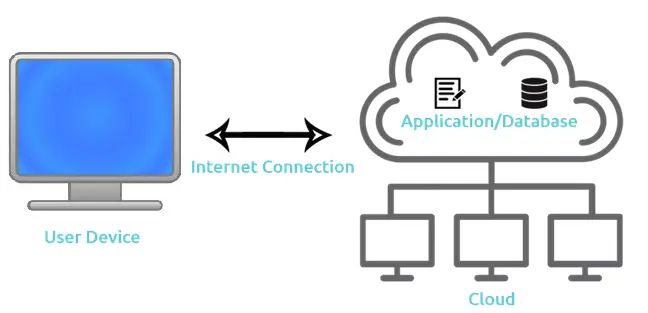Unlocking the Mysteries of Cloud Services: A Comprehensive Guide

The term “cloud services” has become ubiquitous in today’s digital age. Cloud services have revolutionized how we interact with technology, from storing photos on your smartphone to running complex business applications. But what exactly are cloud services, and how do they work? This comprehensive guide will delve into cloud services, exploring their definition, types, benefits, and more.
Table of Contents
What Are Cloud Services
Cloud services refer to a range of on-demand computing services delivered online. These services encompass everything from storage and processing power to applications and software. Cloud services allow users to access and utilize computing resources without needing local infrastructure or hardware.
Understanding the Types of Cloud Services
- Infrastructure as a Service (IaaS): IaaS providers offer virtualized computing resources over the Internet, including servers, storage, and networking.
- Platform as a Service (PaaS): PaaS providers offer platforms and tools for building, deploying, and managing applications without the complexity of infrastructure management.
- Software as a Service (SaaS): SaaS providers deliver software applications over the internet, allowing users to access them via web browsers or APIs without needing installation or maintenance.
How Do Cloud Services Work?
Cloud services host computing resources on remote servers maintained by cloud service providers. Users can access these resources online, typically through a web browser or specialized client software. Data and applications are stored and managed in the cloud, allowing seamless access from any device with an internet connection.

Benefits of Cloud Services
- Scalability: Cloud services offer the flexibility to scale resources up or down based on demand, allowing businesses to adapt quickly to changing needs.
- Cost Efficiency: With pay-as-you-go pricing models, cloud services eliminate the need for upfront hardware investments, reducing capital expenses.
- Flexibility: Cloud services enable businesses to access and modify computing resources on demand, providing greater agility and responsiveness.
- Reliability: Cloud service providers offer robust infrastructure and redundancy measures, ensuring high availability and reliability for critical applications.
- Security: Cloud services employ advanced security measures, including encryption and access controls, to protect data and applications from unauthorized access.
Frequently Asked Questions
Q: What are the different types of cloud services?
A: The main three types of cloud computing are public cloud, private cloud, and hybrid cloud. Within these deployment models, there are four main services: infrastructure as a service (IaaS), platform as a service (PaaS), software as a service (SaaS), and serverless computing.
Q: What is an example of a cloud service?
A: Examples of SaaS cloud service providers include Dropbox, G Suite, Microsoft Office 365, and Slack. In each of these applications, users can access, share, store, and secure information in “the cloud.”
Q: What is the meaning of cloud services?
A: Cloud services are application and infrastructure resources that exist on the Internet. Third-party providers contract with subscribers for these services, allowing customers to leverage powerful computing resources without having to purchase or maintain hardware and software.
Q: What is the main purpose of cloud services?
A: Cloud computing makes data backup, disaster recovery, and business continuity easier and less expensive because data can be mirrored at multiple redundant sites on the cloud provider’s network.
Conclusion
In conclusion, cloud services represent a fundamental shift in how we approach computing and technology. By leveraging the power of the cloud, businesses and individuals alike can access a wide range of computing resources with unparalleled flexibility, scalability, and efficiency. As we continue to embrace the digital future, understanding and harnessing the potential of cloud services will be vital to driving innovation and success in the modern world.
Related Artical





